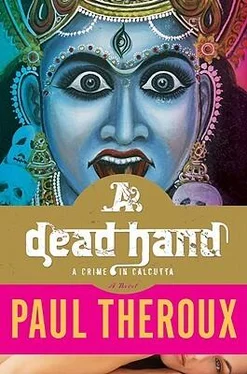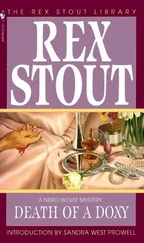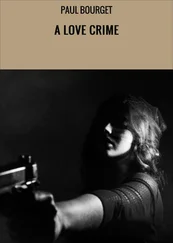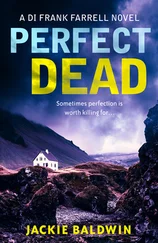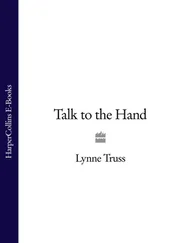I broke off around eight-thirty to order tea and a cheese sandwich, the safest meal at this time of night. I was following Mrs. Unger's usual advice. The ghee butter was rancid and the fish was rotten and the vegetables sodden and the rice stale at the end of the day, she said. And the water was undrinkable, having stagnated so long in the heat.
When Ramachandra came with his tray, I said, "Just a friendly reminder. Remember to close the drawers. Like this."
Exaggerating for effect, I shut the partly open drawer.
"Room boy leave open, sar."
"It wasn't Jagdish."
"Sweeper, sar," he said, wagging his head.
The mission in this blame-shifting society was to win at any cost and to be blameless, and the simplest way was to rubbish the underlings. In multilayered India there was always someone lower than you.
To make me small — to make me wrong — Ramachandra then gave me a formal lesson in shutting the drawer. Using the tips of his fingers, spreading his hands, he demonstrated how this ill-fitting and chunky drawer should properly be pushed closed. He acted as if he was manipulating a highly technical apparatus that required balance and acute tolerances — and of course it was a pitted wooden drawer lined with yellowed paper in a dresser that, when it wobbled at his touch, startled a cockroach into skidding across the floor.
I couldn't help laughing, and though Ramachandra was insulted by my laughter, he laughed too, with the humiliated force of a man who would never forgive it, awaiting his chance to laugh at me for some more serious error. Class and caste abuse had made the prideful Bengalis unusually vindictive, and they liked nothing better than situations that would allow them to stand over a supine victim and crow, "I told you so" or "I've got you now."
"Now let us examine other one," he said, reaching for the bottom drawer.
"Don't bother," I said, and put my foot against it.
After Ramachandra left, I felt that this was perhaps my problem with Mrs. Unger. I'd blundered by showing up unannounced, thanks to Rajat. Would she hold it against me? And maybe I had been maneuvered into going by Rajat, who seemed very uneasy with what I might find in my investigations, this shabby business at the Ananda, his running away. What was he hiding?
I was now certain that he'd found himself in the Ananda Hotel room with a dead boy. I had all the evidence. But had the boy been alive on arrival at the hotel? If not, how had he died? And when? And would I ever find out the name of this small unlucky boy whose withered hand I had in my possession?
The dead hand was hidden in the space behind the bottom drawer that Ramachandra had reached for. It was safe. And the cut-off portion of carpet was with Dr. Mooly Mukherjee at police headquarters.
I didn't write about any of this. I had a new and unexpected subject: Mrs. Unger. I had gone to the Lodge this time as though to an assignation, tense with desire, that feeling in the pit of my stomach that was also a yearning in my mouth, an actual thirst, a slight headache, heat behind my eyeballs: desire was an acute form of hunger, and I was seeking relief. I wanted to hold her, I wanted to be held. I was half consumed by anticipated lust.
And it had all gone wrong. First the agitated behavior of Rajat in the taxi, then the sight of the small girl being led away by the cranky American, and finally in the darkness of the vault being touched as if by a stranger. It was nothing Mrs. Unger had said; in fact, she'd tried to reassure me. But something in her fingers told me that she was unwilling, that she hadn't wanted to see me. There was an element of violence in the pressure of her hands, something, as I said, strangulatory. But why? I had never felt this way before with her. In the beginning I'd known uneasiness, perhaps, but never fear. I had the idea that she was debating whether to caress me or throttle me with those powerful fingers.
Someone you know well says or does something unexpected and, no matter how slight, if it is entirely out of character, it is as if you've had a glimpse of a stranger. You've learned something new, something you hadn't guessed — and something this person doesn't know about you. Who is she? I kept thinking. I thought I knew her so well, and here I was utterly baffled. The more she had touched me, the greater my sense that she didn't want me there, that she hadn't expected me, that the deadening pressure of her fingers was hostile, killing my desire and making me want to leave. I sensed a darkness I had never before felt in her vault, and in spite of the oil lamp and the incense I was aware that Mrs. Unger was giving off a bad smell.
She had lain and parted her legs, and as though asking a question or murmuring a prayer, I'd gone down on her. The taste was sour, a slipperiness, the negligent kiss of reluctant lips, an unyielding and impenetrable mouth bulging with teeth.
Now I had worked myself into such a state I couldn't eat the cheese sandwich Ramachandra had brought. I sipped the tea. I was stifled. The trapped air in the room tired me, but there was no point going outside, where the air would be even fouler. The bad light wearied me. I wrote, describing this new Mrs. Unger, and in my description I saw the face of the small girl.
Outside the Hastings the lanterns and dim lights of evening, the fires and flares, made a lurid pattern, as of disease, on the plaster walls of my room. I was too tired to sit in the glary light of the Hastings lobby; I couldn't bear the thought of seeing Ramachandra, who would be overattentive as a way of bullying me. My ballpoint pen was heavy, unsteady in my fingers; my writing faltered.
I lay on my bed. I switched the bedside lamp off to rest my eyes. I dozed. The faces before me were ones I knew but couldn't name — children, not laughing anymore; the small girl. And I slept, dreaming, the world becoming vivid and real, and in my dream were voices.
That was when I sat up and said aloud, "Usha. Dawn."
My face was damp from the heat. I blinked in the darkness. I didn't know how long I'd been asleep, but speaking the name startled me and seemed to pinch some part of my brain, quickening it, waking me up with the girl's name. This flash of insight was a needle-prick of sound that kept me wakeful. I tried to sleep, but remembering the name, connecting it to the child I'd seen in Shibpur and in the taxi ( I am her mother ) created a stream of images I could not stop. The face became brighter when I shut my eyes. In one of the images I saw the sharp-faced American woman tugging Usha into the car and being rude to me as the small girl opened her mouth in soundless panic — her breath stopped — before being spirited away in an adoption that was more like an abduction. The skinny middle-aged woman did not look at all like a mother but like a dog lover or a socialite.
My mouth was dry from having uttered the little girl's name. I lay on the hard mattress, in the dusty air, in the smell of the mildewed carpet, the chipped paint on the chairs, the scratched varnish of the desk, the accumulated fur on the wardrobe mirror, the threadbare curtains, the grime on the blue petals of the plastic flowers on the dresser, my cheese sandwich souring on its plate, the bread warping as it went stale. Even in the darkness the room was warm with decay, every item of furniture giving off its distinctive smell, and with all that there was the insistent stink of the street. The whole of Calcutta lay hot and ripe against my face.
The smells kept me awake, and in this density of bad air there was the burned-toast hum of old cigarette smoke. Twisted on my bed like a castaway, my nerves alight, I was hungry and yet disgusted by the thought of food. The furniture, picked out in its smells and its shadows, shimmered too from the sulfurous yellow of the street lamps at the corner of Sudder Street.
Читать дальше
